Programme
Change the world
What we do
Working directly with Children (UDAY Schools):
We directly work with children between the age-group 3 and 14 years, through three Uday Community Schools in Sawai Madhopur and Tonk districts. The schools are affiliated under Rajasthan Education Board and ensure Quality Education from Early-Childhood till Grade 8. The schools are community-led and being run on the cooperative-principle.
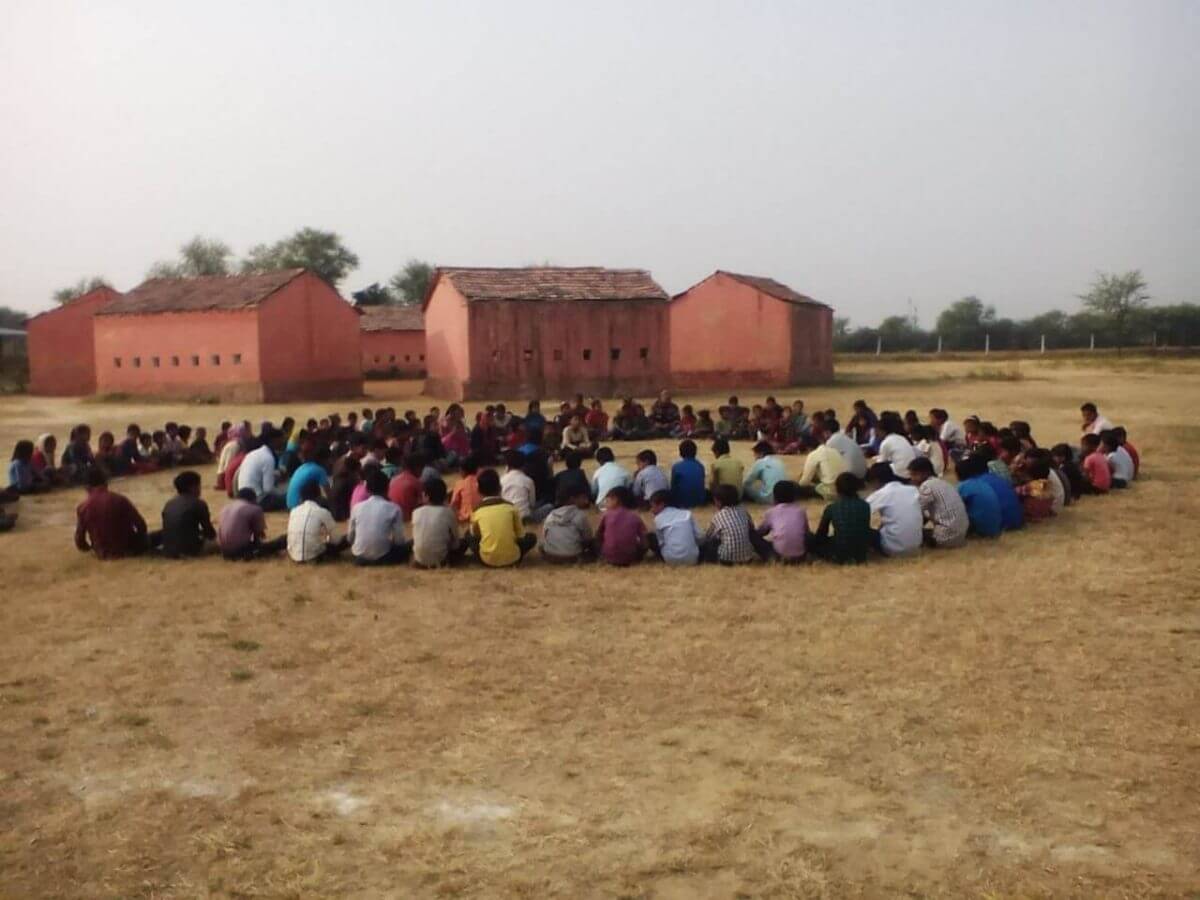
UDAY SAMUDAYIK PATSHALA JAGANPURA
Built on land donated by the community, Uday Community School – Jaganpura is GSK‘s first school established in 2004 and provides an education for 200 children in grades Pre-primary (Anganwadi) to 8 from five villages in the vicinity. The school is the foundation of our work, where the community takes a lead role in the smooth functioning of the school. The next and the ultimate step is to hand-over the school to the community so that they could run it sustainably.
The school has a handball team of girls which is state-ranked and competes across Rajasthan. Alumni accomplishments include being the first girl in the village to attend college, joining the Air Force, and admission to sports academies.
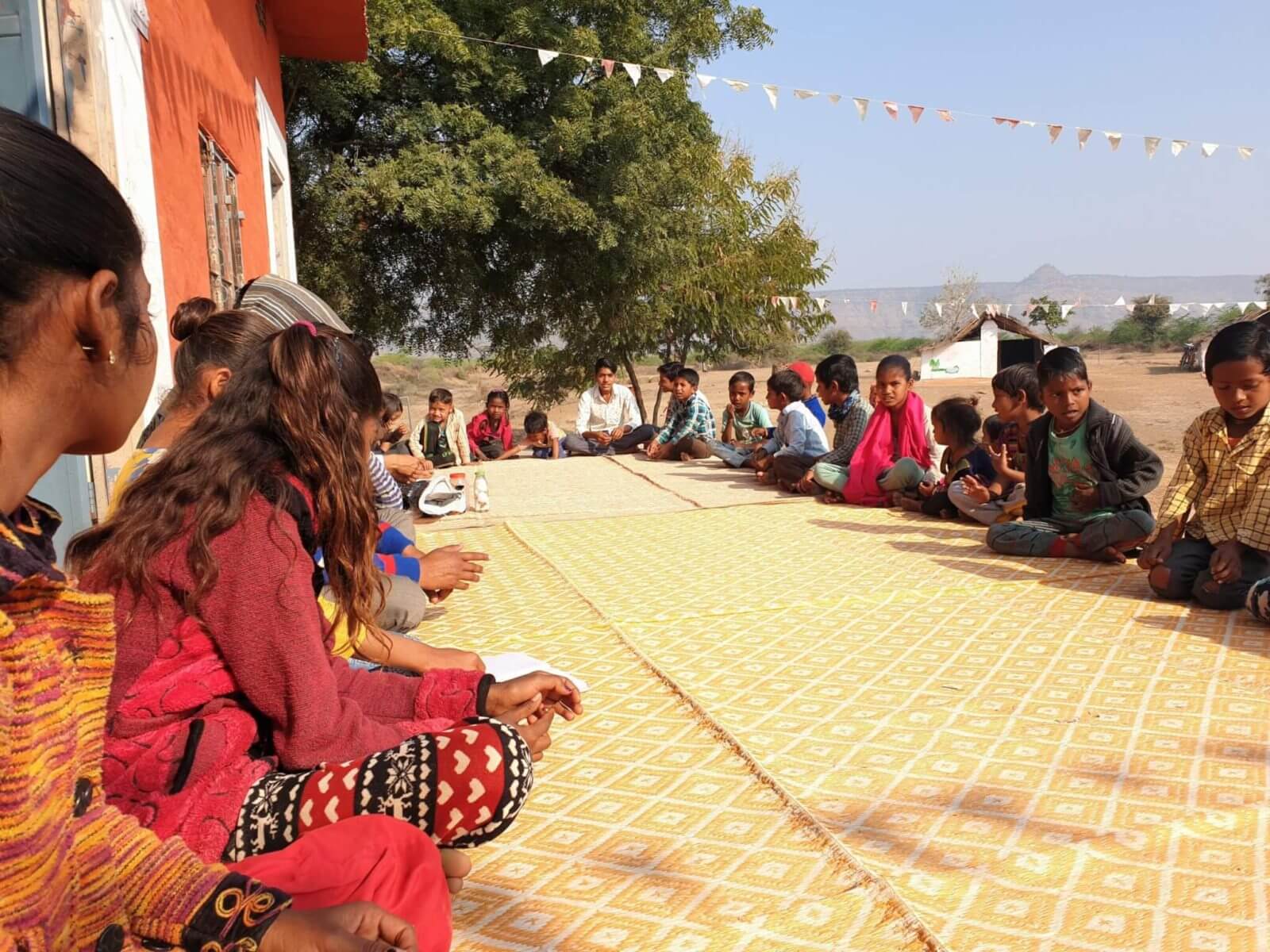
UDAY SAMUDAYIK PATSHALA FARIYA
Uday Community School – Fariya is located in the block – Khandar, established in 2009, provides education to 95 students in grades Pre-primary to 8 from majorly 3 village communities including one of the backward communities of Bhopa which migrate from one place to another in search of livelihood and face the brunt of economic and social biases.
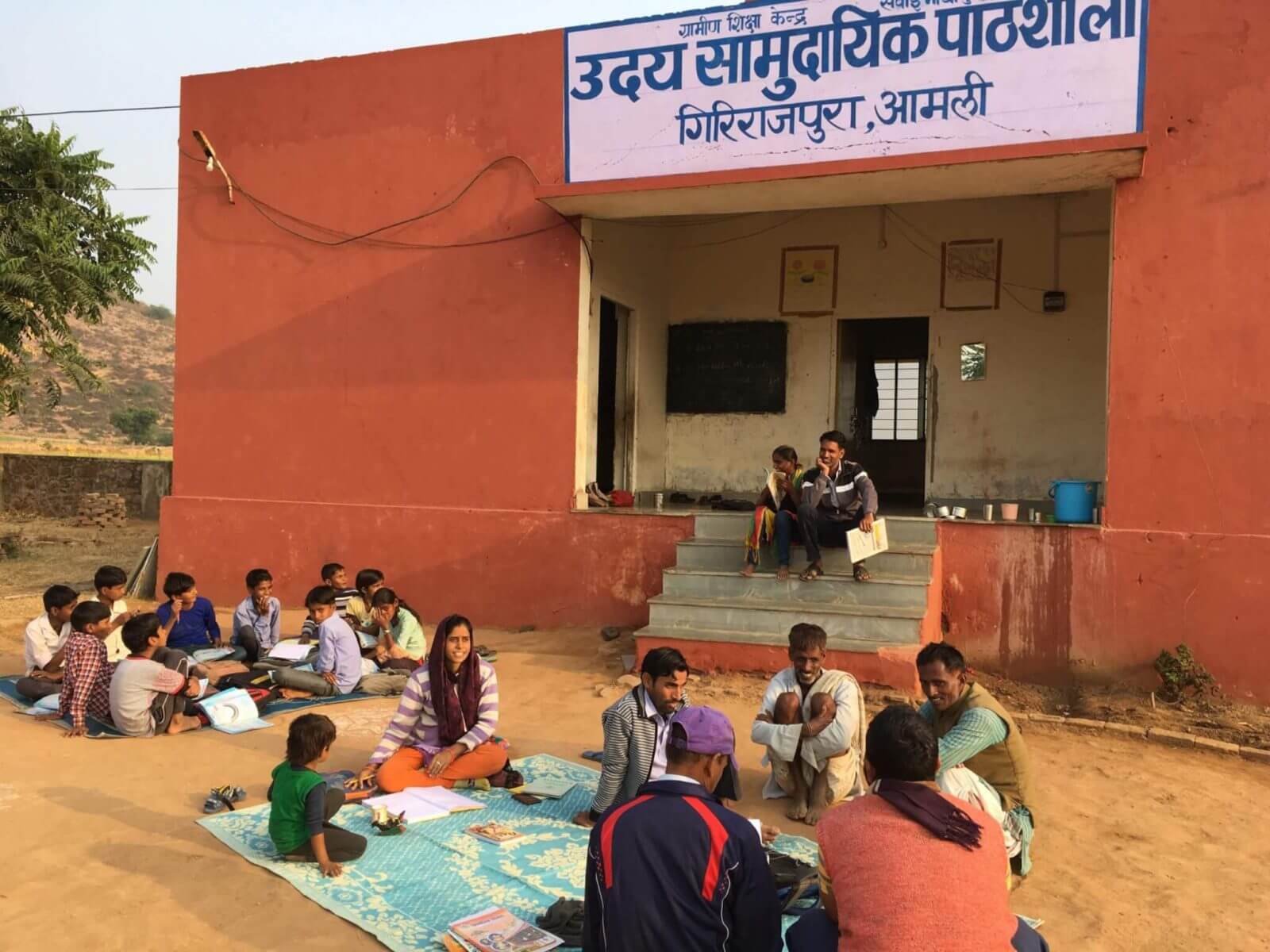
UDAY SAMUDAYIK PATSHALA GIRIRAJPURA
Uday Community School – Girirajpura was established in 2014 at the request of the Girirajpura community, which had a longstanding relationship with GSK and was relocated from Ranthambore National Park to Tonk district in 2011. The school currently offers an education to 90 students up to grade 6. It is the only school within walking distance for primary school children in relocated communities and has recently received an influx of students from another village 4 kilometres away, Amli, due to the good reputation of the school.
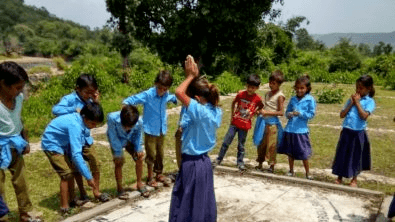
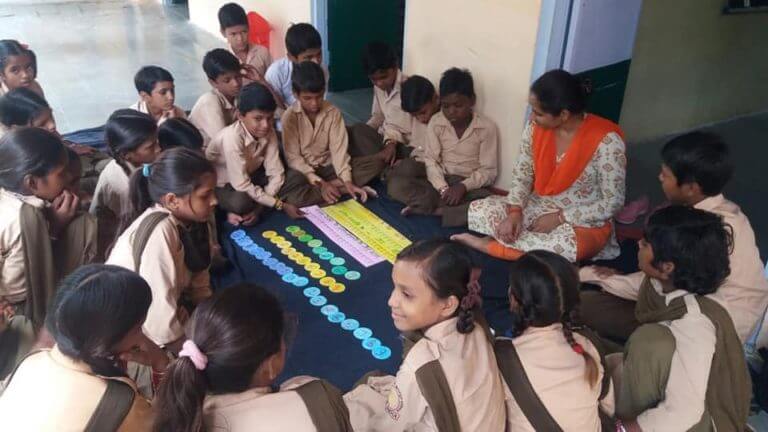
Vistaar Programme:
Our work with 70 government schools around the Uday Schools is through our STEAM laboratory and our Vistaar outreach programme: which enables the government schools to adopt child-centred practices.
Our programme work on a hub and spoke model, where Uday Community Schools are acting as a laboratory at the centre and through each of the Uday schools, we work with 20-25 government schools and with their community in their vicinity.
We follow a two-pronged strategy through which is:
- Creating demand for Quality Education among the parents community and
- Working with the teachers to train them in activity-based learning, developing an engaging classroom.
Focus: Assisting government schools to adopt progressive methods of school and classroom management including planning lessons
i. In-line with the curriculum
ii. Incorporating child-centred learning processes
iii. Regular evaluation children‘s growth.
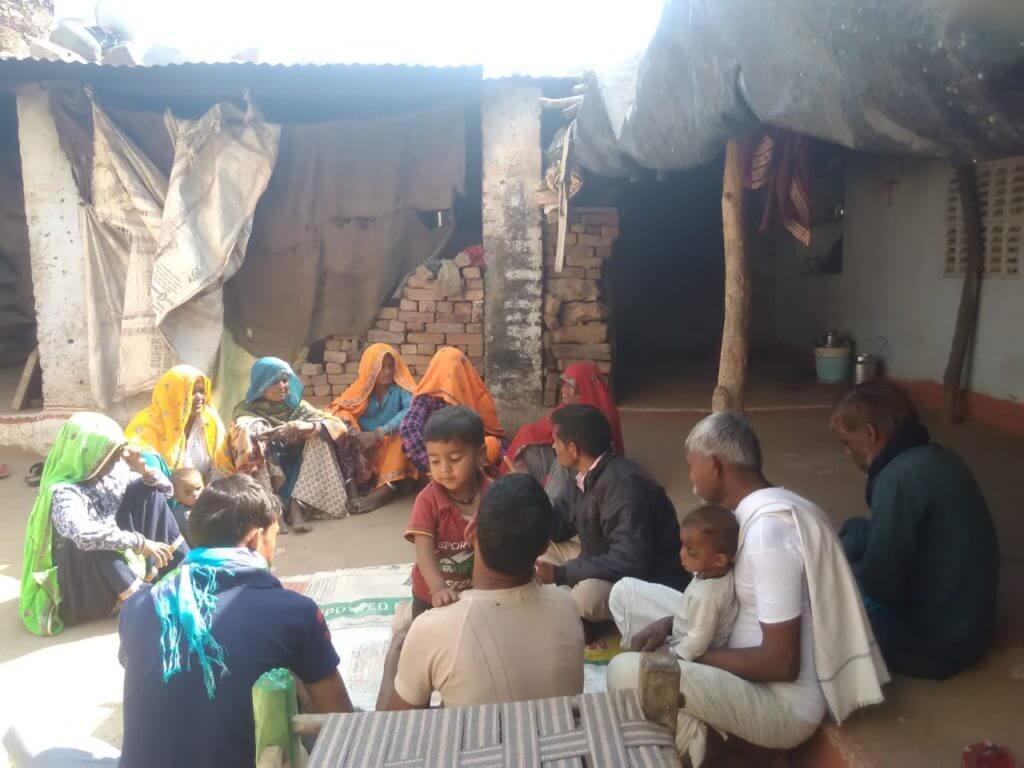
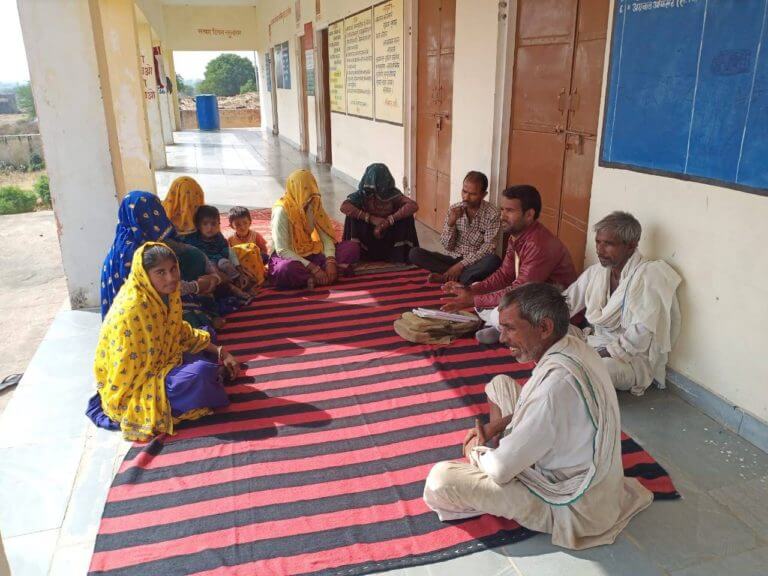
Working with the Parents' Community:
We believe that the community is the direct beneficiary of the education programme and therefore, they must not remain a passive recipient of the education system. Right at the inception phase of Uday Community School, the goal was very clear, i.e. to hand over Uday schools to the parents‘ community so that they could run these schools independently and effectively with a cooperative model of education. For attaining the goal, it was required to let the community interact with the schools and understand the nuances of quality education.
We also work with 75 parents’ communities including the former and the current School Management Committee (SMC) members. If SMCs are active enough to take up the responsibility of schools, then schools will be functioning properly. Therefore, our focus is to make SMCs strong, so as to give them the confidence to ask for data on learning levels of children, performance of teachers and the overall functioning of the schools.
Our aim is to build a cadre of 8 – 10 SMC members in each programme village who can revolutionize and put forth their demands for such education to the Government.
The SMC programme uses the RBM performance assessment toolkit. The toolkit consists of 20-21 indicators that determine the performance of each SMC. To know more about the toolkit, contact us here.
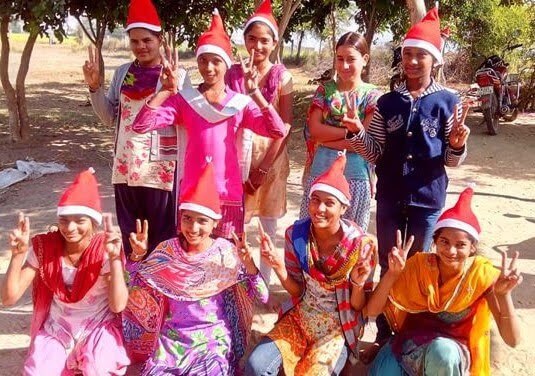
Umang Programme:
We piloted the Umang programme in 2016-17 with a cohort of 29 adolescent girls having poor socio-economic background and struggling with poor learning levels. The programme aims to strengthen their agency as an individual and provide an alternative space for their empowerment which they don’t often get at their homes and schools. All the 29 girls have cleared their grade 10 board exams and are continuing their education today.
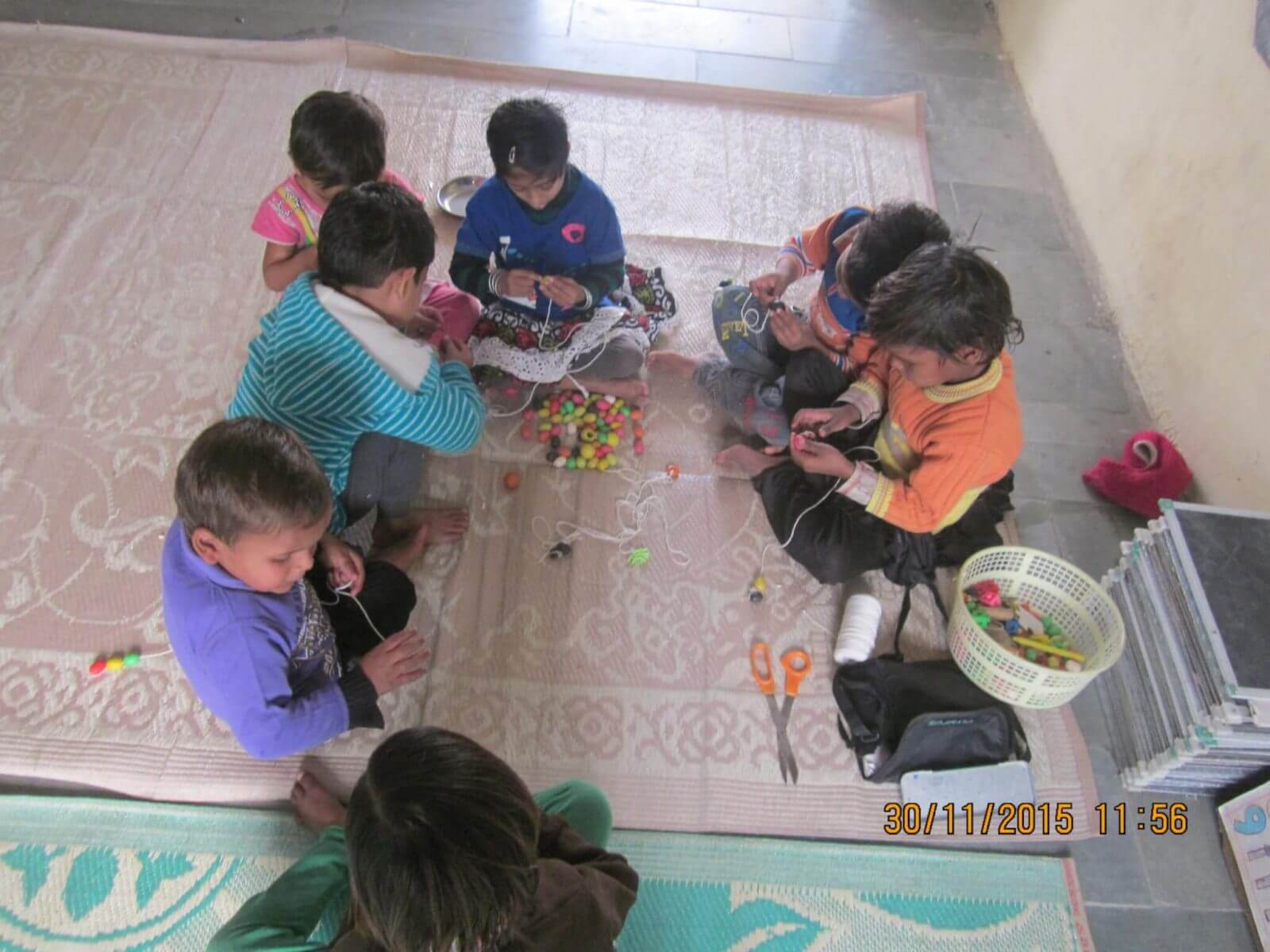
Tarang Programme:
Through Uday Community Schools, we have also emphasized on improving the quality of Early Childhood Education (ECE) for the children belonging to the age-group of 3-6 years. In the past, we adopted two Anganwadis for transforming them into Adarsh (Model) Anganwadis in the district.
We are currently working with two more Anganwadi centers in the vicinity of Uday School-Fariya with an aim to set-up a community-based model of Quality ECE in the area. The programme works through an evolved set of activities by engaging the key stakeholders especially the mothers, Anganwadi and ASHA workers.
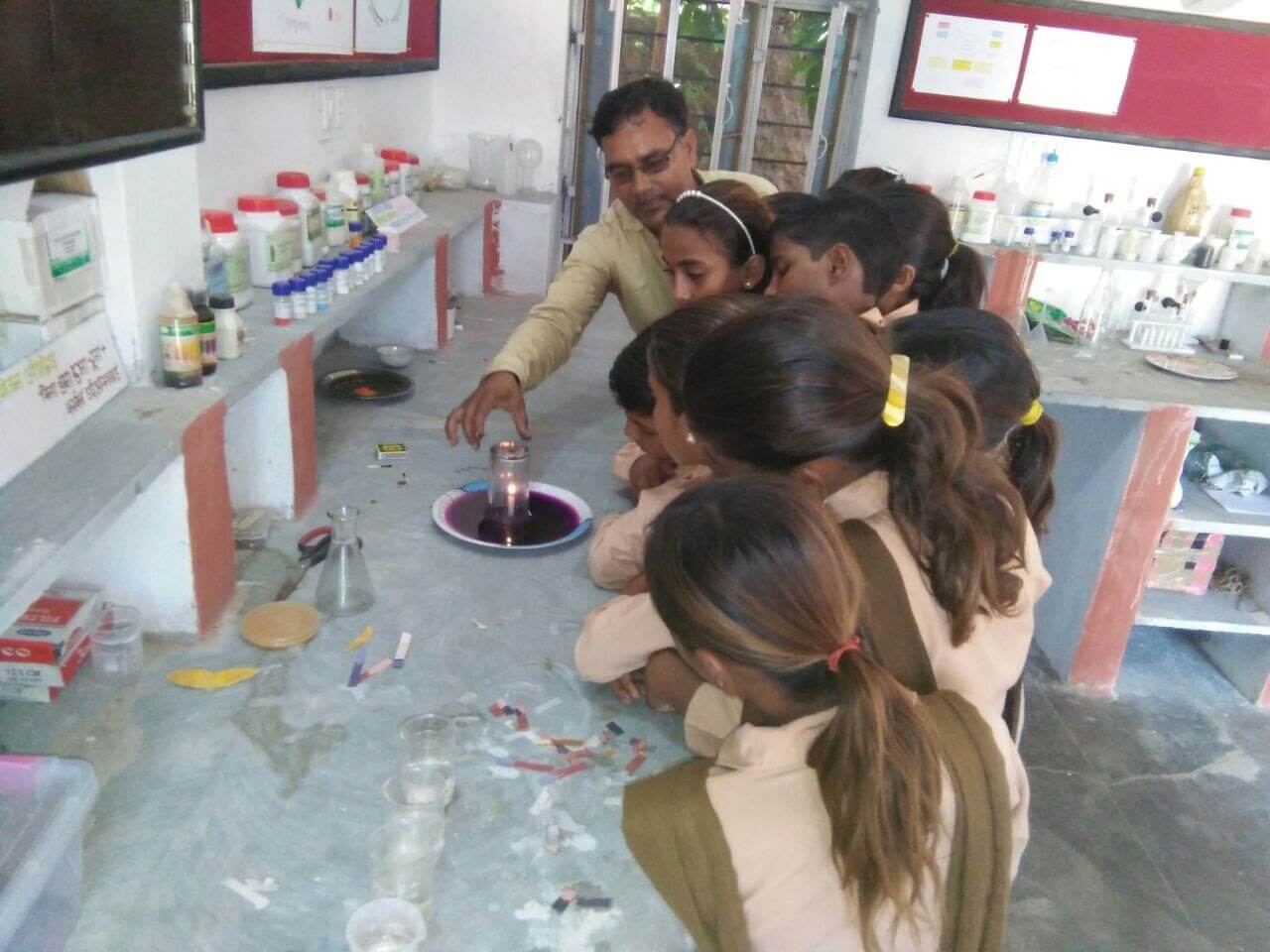
STEAM laboratory:
We established a STEAM (Science, Technology, Engineering, Arts, and Mathematics) laboratory in 2017 at one of our programme village, Bodal for demonstrating and promoting the idea of research and activity based STEAM education in the government schools. The STEAM Programme comprises of a contextual curriculum under a formal educational structure of how STEAM subjects relate to each other in reality. For the academic session 2019-20, we had planned for the following:
- Meticulously working on strengthening and improving the pedagogy especially in subjects – Science, Mathematics and Arts.
- Encourage exploration of local arts, culture and history and creating a link between their subjects and the natural environment around them.
- Provide exposure to children and government teachers.
- Promoting indoor and outdoor games as teaching methodology and to promote sports to be a part of the curriculum.
- Conducting Science Exhibitions at schools for increasing participation of students, teachers and community.
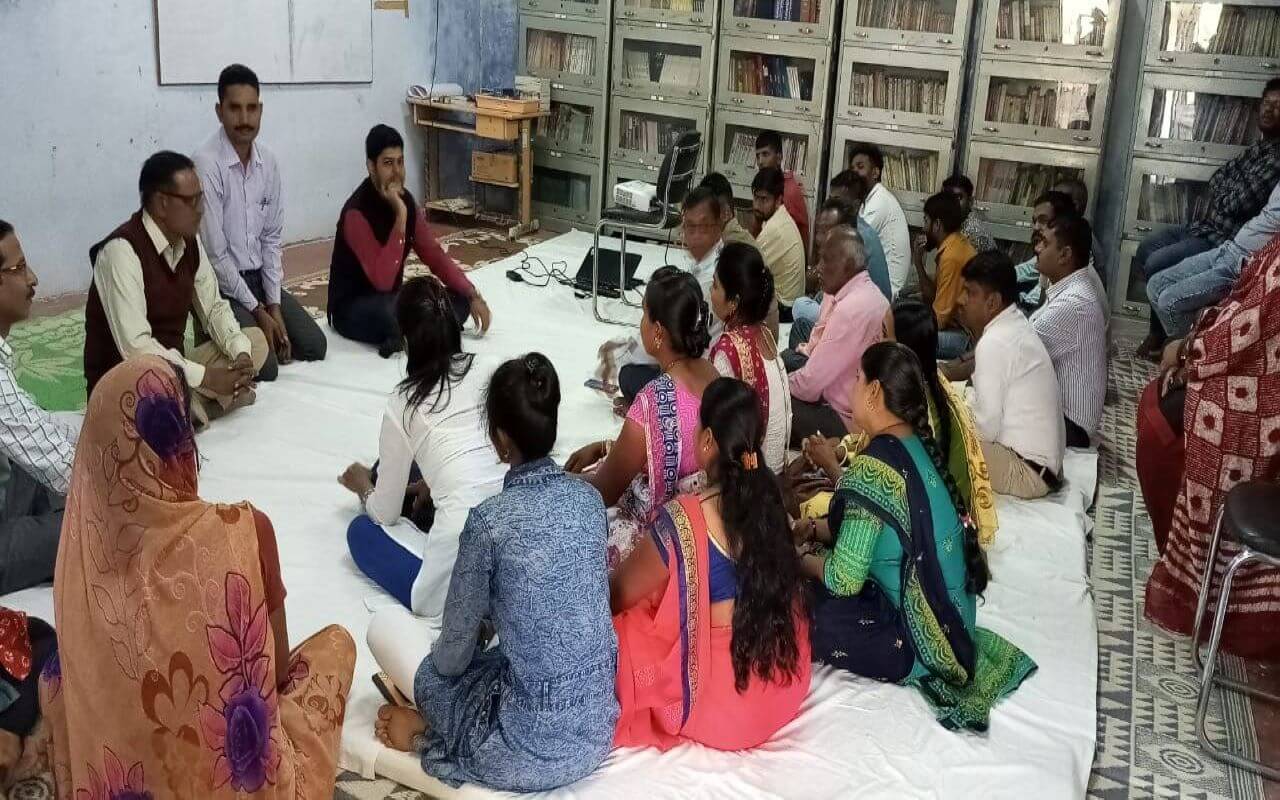
GSK as Resource agency:
After years of experience in education, working on improving the quality of education, working directly with communities and students, we have been able to form a basis on an approach. We have always believed in sharing and expanding our knowledge for the betterment of education in the country and therefore we recently became a resource agency and conducts various training programmes for teachers, educators and Gram Panchayat members. A 11 day training programme has been designed for members of schools, teachers and Gram Panchayat. We have conducted various training programmes organized by AKRSP with Gram Panchayat members, SMC members and government school teachers.
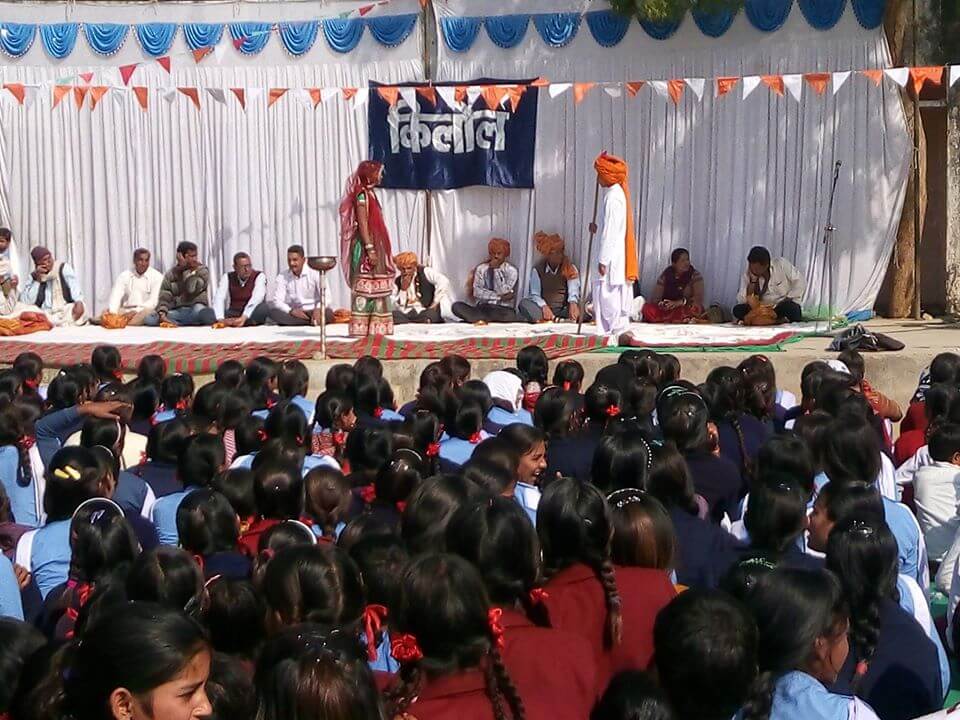
Kilol:
Kilol is a celebration of education. It is an event when the entire community comes together, and participates in the celebration. The Kilol consists of exhibits of different subjects including Science, Arts, languages, Math etc. and many games such as Kabbadi, Handball and Kho-Kho matches. There are many events and activities planned out for the parents and the community members as well. Parents, students and teachers from nearby Government schools and Uday schools actively participate.
“Kilol is the sound of the children having fun.
Kilol is their sound while playing in the fields.
Kilol is the sound of cheerful children bringing joy to everyone.
Kilol for GSK is about creating that space for children feel it is for them.”
The past few Kilols have been huge success events in bringing the communities, especially the mothers, closer to the schools.
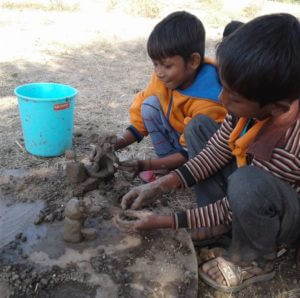
Co-Scholastic Clubs:
Co-scholastic activities is essential in the overall development of students. The school has started various clubs. These clubs help in the development of habits, values, attitude, increase brain function, increase self confidence, create a space that practices healthy collective participation, expose them to specialization of an activity of interest and most importantly enjoy what they are doing.
Clubs also strengthen the classroom learning by presenting a practical picture of by-hearted knowledge presented in their theoretical classes. All this goes by the saying – “Teach me and I will forget. Show me, and I might remember. Involve me, and I will never forget”.
The clubs conducted at Uday Schools include – Cooking, Kitchen Gardening, Dancing, Reading, Sports, Chess etc. The clubs have been initiated according to the demands of students.
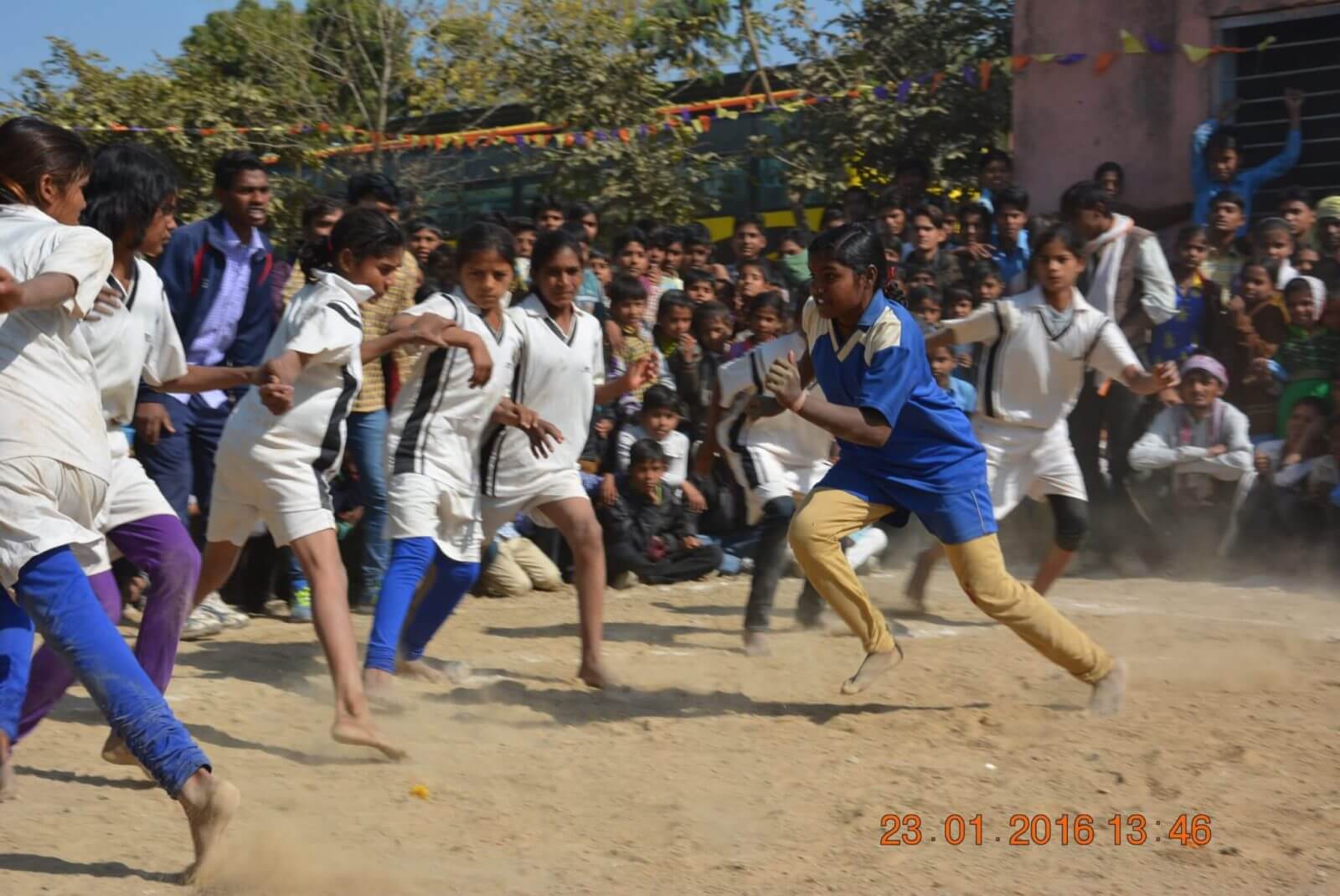
Sports Programme:
Sports are an integral part of the curriculum at GSK. Through sports, children are able to initiate his/her own action and participate in an environment that transforms him/her into sensitive, assertive, and confident individuals. While playing, children learn courage, dependability, honesty, perseverance and self-discipline and adopt a life-skill which is helpful for their development. Every year, there are around 25 children from Uday Community Schools, who participate in Sports tournaments at the district, state and national level. Our goal is to encourage the culture of Sports in the district by playing the role of a catalyst. We also try to encourage the students to look at Sports as an occupational opportunity as well.
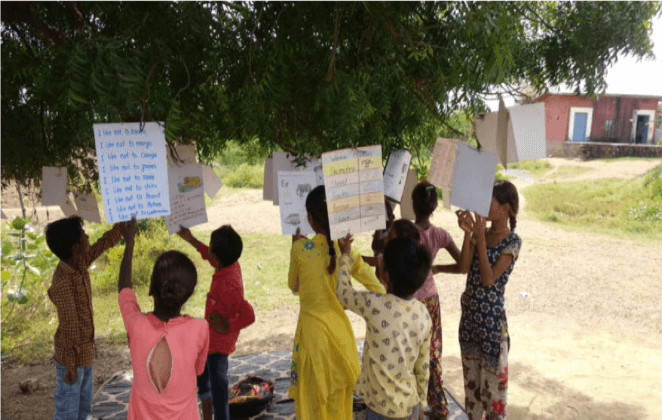
English Programme
We initiated the English Programme at Uday Schools in 2015 as an experiment while taking assistance of NCERT with an aim to ensure a learning-supportive environment for children to learn a secondary language. The programme emphasizes on contextual education by improving the pedagogy and content. The programme also uses a Print Rich Environment to improve the exposure of language for students. Most of the students are first generation learners who are only exposed to their local languages and do not have any form of a Print Rich Environment at their homes or localities. The programme has shown significantly good results and we are now piloting the programme at two government schools. The Action research programe on English language was published in the magazine – “Learning curve.” By Azim Premji University.
The organization has designed a complete activity bank that we have evolved over the past 5 years. To know more and to request for the activity bank kindly contact us here.
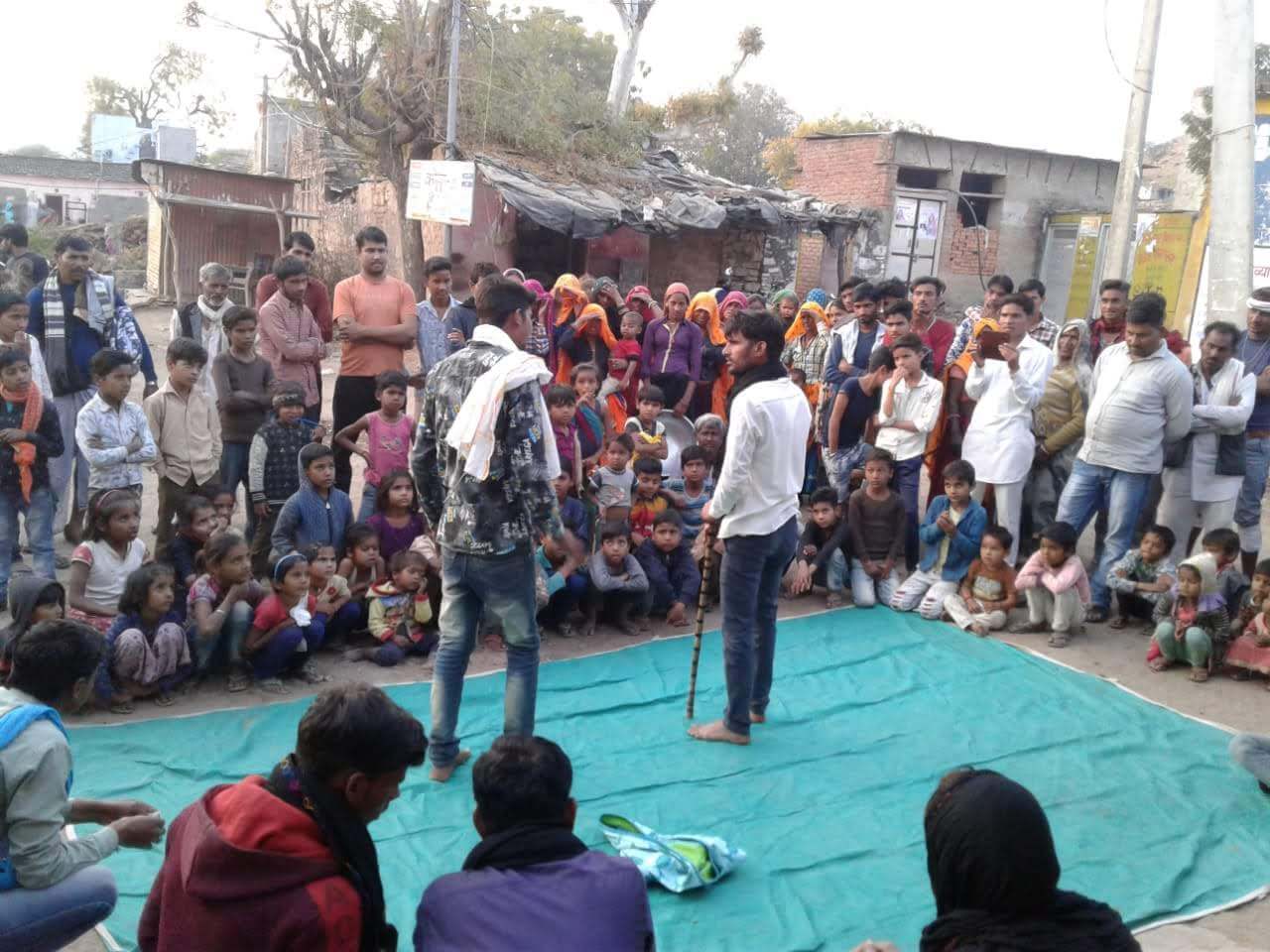
Forum Theatre (The Theatre of the Oppressed):
Forum Theatre is a type of theatre that relates to engagement of spectators influencing the performance as both spectators and actors, termed “spect-actors”, with the power to stop and change the performance. In order to strengthen our work with the communities for addressing the issues related to Education and reinforcing the significance of their participation in the schools, we have initiated the Forum Theatre programme with 18 village communities.
Our philosophy is that the school is an extension of the community and therefore they must actively participate in its functioning of the school. To bring an effective change in the community, there is a need for constant dialogue with the families and communities, To not only bring certain awareness to the community but also yo give them the opportunity to be a part of creating the solution. With communities that are not habituated in having conversations and dialogue it is important to have an effective way of engaging them in a conversation.
What we care for
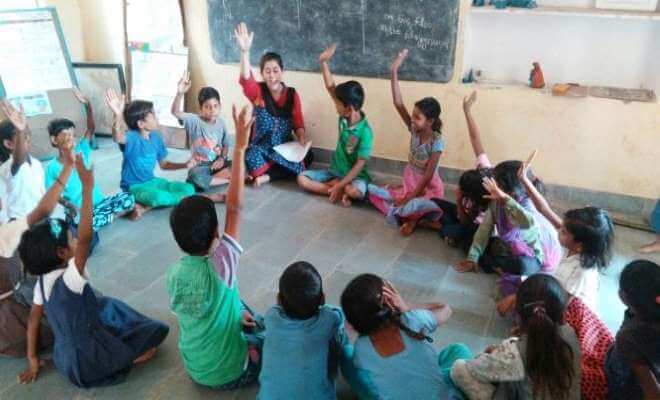
Safe Environment
Providing a space space for children to express themselves and a space that give importance to the mental, physical and emotional well-being of the children.

Quality of education
Providing education that is democratic, child centered and to ensure a holistic development of children.

Importance to Co-Scholastic activities
Emphasis given to co-scholatic activities not only to compliment the scholastic activities but also to engage students in various forms of learning and opportunities. The most neglected and marginalized communities.
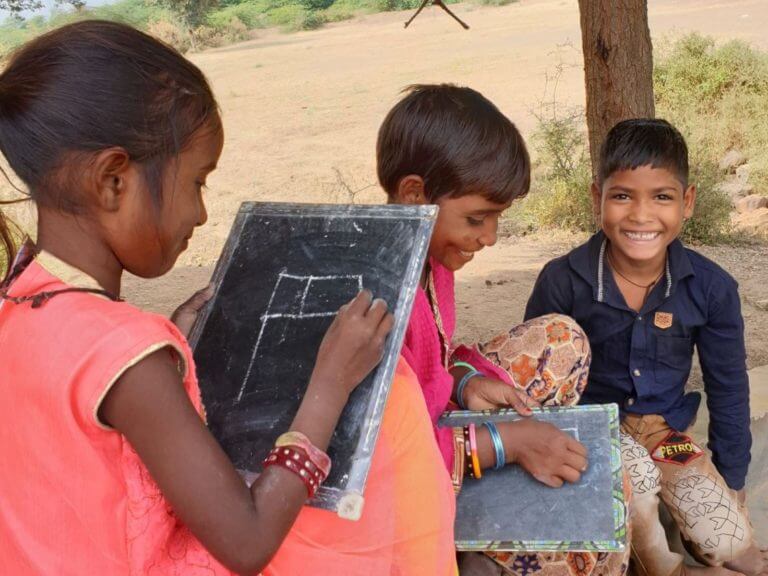
Elimination of inequities
The schools practice and promote inclusive education eliminating inequities based on gender, religion, economic class, caste and learning ability.
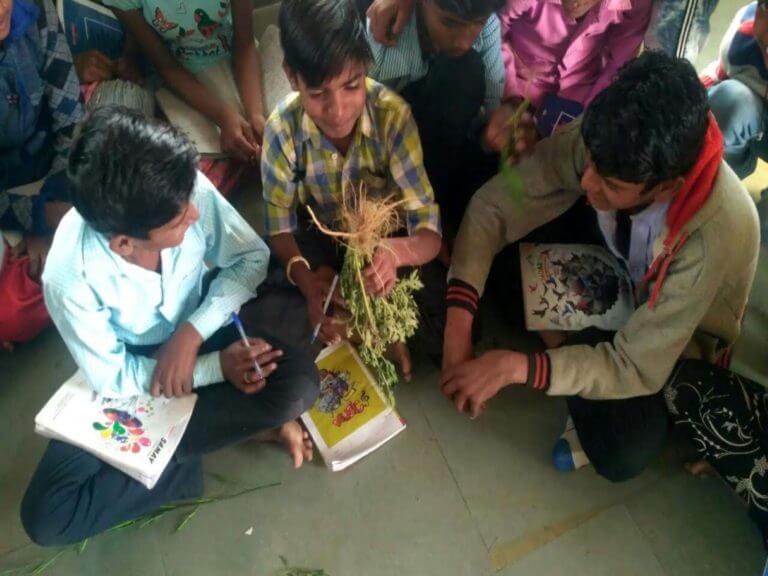
Contextual Learning
The schools focus on contextual learning while providing exposure to children of the outside world through the visits, library or technological means.
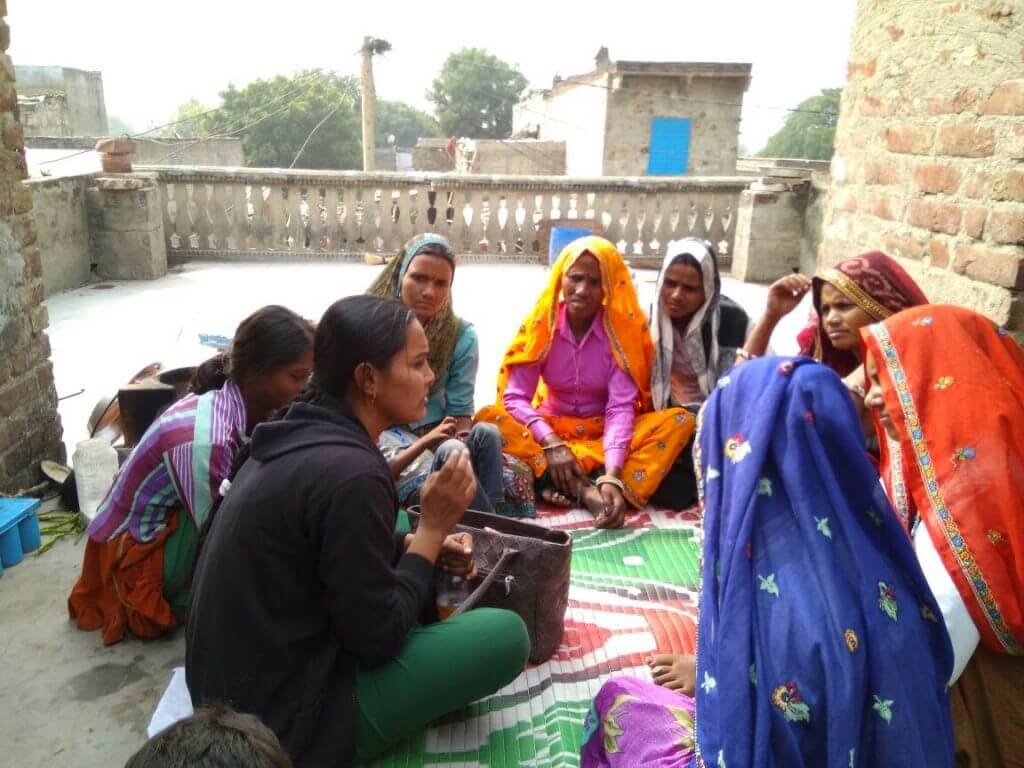
Community involvement
It is when the communities are motivated to demand quality education, the government school system is made accountable and able to function to its full potential.
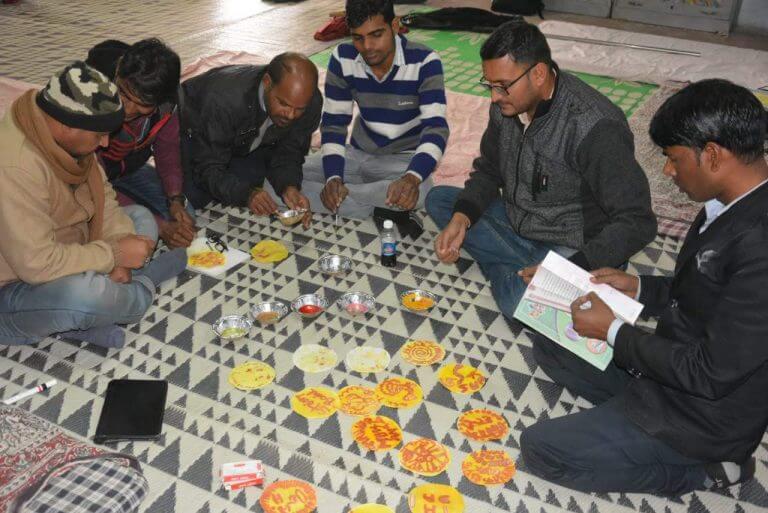
Equiping teachers
Providing a safe, inclusive and open environment for the students to become confident and sensitive individuals.
